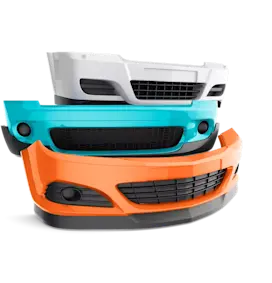Comparing Discrete Manufacturing ERP Systems: What to Look For
Comparing Discrete Manufacturing ERP Systems: What to Look For
Comparing Discrete Manufacturing ERP Systems: What to Look For
9 Dec 2021
Jim Tuttle
When you’re upgrading your discrete manufacturing ERP software, or embracing ERP for the first time, you want your new solution to return on investment. Which means finding the best-fit technology for your business.
But with so many ERP systems on the market, how do you narrow it down to one choice?
To help you make a strong commercial decision, Aptean has created a quick guide to comparing discrete manufacturing ERP systems—so you can improve your manufacturing productivity with minimal disruption during software deployment.
What To Look for When Choosing Manufacturing ERP
ERP software is an effective way to build a lean manufacturing operation, as it helps your organization to manage the demands of multiple customers through one platform and meet diverse order requirements.
You can optimize operations to a certain degree with general ERP technology, but a manufacturing industry specific ERP system usually delivers better value. Why? Because it contains specialist features that support the needs of organizations assembling multi-component products.
Therefore, when you’re looking for new operational technology, it’s best to choose discrete manufacturing ERP systems rather than a generic manufacturing solution. Which should help you to rule out several options on your shortlist immediately.
What Features Should Your Shortlisted Discrete Manufacturing ERP Systems Include?
Even after you’ve narrowed your choice down to sector-specific solutions, there are still multiple software options available. This is when comparing potential discrete manufacturing ERP systems side-by-side really helps your selection process.
There are certain modules that most (if not all) ERP software will contain, including data analytics and finance/accounting capabilities. Read our Ultimate Guide to Manufacturing ERP to find out more about what these are.
But market-leading discrete manufacturing ERP systems contain additional features that enable your business to run a faster, leaner, more efficient operation. These features include:
Production planning. Discrete manufacturing ERP technology will use data on all your upcoming customer orders to create the most time and resource efficient schedules. For example: grouping jobs by product type or similar components, rather than the order in which they were received, to minimize the number of tooling changeovers required on your production line each day.
Inventory control. While every manufacturer has stock to coordinate, discrete manufacturers can be dealing with thousands of components, some of which look incredibly similar at first glance. The right ERP software enables you to carefully itemize every component using techniques like barcode scanning and RFID tracking, so your team knows exactly how many SKUs you have at any one time, and where materials are located. If you’re a configure-to-order (CTO) or make-to-order (MTO) manufacturer, look for discrete ERP software with product configuration tools, as these will help you to manage inventory more effectively—including identifying what components have been allocated to upcoming orders already, as well as what materials can still be utilized.
Materials requirement planning. With so many components to manage, it would be easy to overstock materials just to be on the safe side. But the more inventory you hold, the more space it takes up—which is why many discrete manufacturers operate a just in time (JIT) model. Investing in discrete manufacturing ERP systems with materials requirement planning technology enables you to run a lean manufacturing model with low levels of components on site, without leaving yourself dangerously vulnerable to out-of-stock scenarios that hold up production.
Bill of materials. Accuracy is critical to running a successful discrete manufacturing organization, and that means accurately capturing exactly what components need to be procured for each job, and issuing detailed instructions to the factory floor. ERP software provides this detailed level of information by enabling you to automatically create a bill of materials (BOM) for each approved quote. So you can move from estimating to production as quickly and seamlessly as possible.
Supply chain management. No amount of production line optimization is going to enhance your business if you don’t have the right supplies in stock. And discrete manufacturing ERP systems enable you to manage all your supplier relationships in one place. Centrally managing supplier data allows you to plan who you’re buying materials from and when they will arrive, so you can make sure your production schedule aligns with component deliveries. Being able to understand lead times and the impact of any changes is particularly important if you’re sourcing components from overseas – for example, 43% of the world’s electronic components are produced in China – as they are more vulnerable to shipment delays.
Customer demand planning. To maximize production time, you need the forecasting capabilities to see what’s in the pipeline and build new customer jobs into your schedule. Understanding the total value of each customer can also help you to prioritize those of highest value, so they’re first in line if you ever experience delays or material shortages.
Regulatory compliance and quality control. Meeting manufacturing industry standards is pivotal to your reputation, but discrete manufacturing legislation is constantly evolving. Choosing manufacturing ERP software enables you to put the checks and certifications in place to keep pace with sector compliance, including complex guidelines like Registration, Evaluation, Authorization, and Restriction of Chemicals (REACH) and Restriction of Hazardous Substances (RoHS).
How To Find the Best-Fit Discrete Manufacturing ERP Systems for Your Business
Ideally, your chosen ERP software should include all of the features we mentioned above, so it’s a good exercise to compare all the solutions you’re considering against this list, to eliminate any that lack the core functionality your business needs. But what happens if there is still more than one technology on your shortlist at the end of this comparison?
There are other aspects you can assess when choosing manufacturing ERP, to make sure you select the best-fit discrete manufacturing ERP system for your business. For example:
Is the solution cloud-based or on-premise? Cloud ERP software is better suited to running a lean manufacturing operation, as it can be accessed via any device and doesn’t require an engineer on site to install, patch, fix or upgrade.
What technical support services does the ERP software provider include? While your chosen system should be easy to operate, your organization needs simple access to helpful advice if something isn’t working to plan, so you can remedy issues quickly without impacting overall productivity.
Has the vendor got a proven track record in the discrete manufacturing sector? A good partner will understand the challenges of working in discrete manufacturing, to ensure that their technology drives rapid value. Always ask for case studies and customer testimonials from other organizations in your industry as vendor proof points.
Have you seen how the ERP platform works? It sounds obvious, but make sure you book a free demonstration with your shortlisted ERP vendors, to see first-hand how the software works, and ask as many questions as you want.
Finally, don’t be afraid to trust your gut. If you get your investment right, you’re going to be using this ERP system for a long time, so you want to choose a technical partner that you’ve got chemistry with.
Don’t ignore any red flags—or you could be facing the costly and time-consuming job of ending your contract and moving to a different discrete manufacturing ERP vendor further down the line.
Aptean Industrial Manufacturing ERP has been developed specifically for discrete manufacturers. From materials requirement planning to supply chain management, every feature on our platform is designed to help you run a smarter, quicker, more cost efficient manufacturing operation.
Get in touch with Aptean to find out more about our excellent track record in discrete manufacturing and book your free live ERP software demonstration.
Related Blogs





Zet vandaag nog de transformatie van uw bedrijf in gang
Bent u klaar om uw industriële productie naar een hoger niveau te tillen? Dan helpen we u graag.



